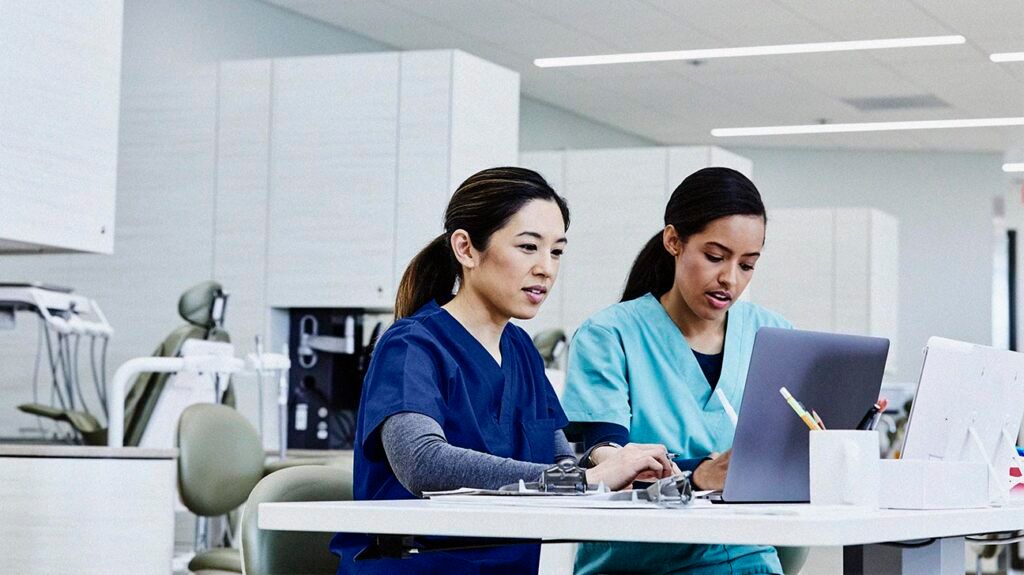A doctor may refer a person for an urgent colonoscopy if they display severe symptoms, such as unexplained rectal bleeding, sudden changes in bowel habits, or acute abdominal pain.
An urgent colonoscopy will help the doctor promptly diagnose conditions, such as colorectal cancer, inflammatory bowel diseases, or other conditions causing lower gastrointestinal problems.
While an urgent colonoscopy may help address some pressing situations, its effectiveness, compared to an elective colonoscopy, remains an area of debate.
This article examines possible reasons for an urgent colonoscopy, whether it is more beneficial than an elective one, and questions a person may want to ask a doctor after receiving a referral for an urgent colonoscopy.

Acute or chronic lower gastrointestinal bleeding (LGIB), such as unexplained and persistent rectal bleeding or blood in the stool, is a common reason a doctor may refer someone for an urgent colonoscopy.
However, other reasons for an urgent colonoscopy may include:
- sudden changes in bowel habits, such as persistent diarrhea or constipation
- positive results from a fecal occult blood test (FOBT)
- persistent and severe abdominal pain or discomfort
- anemia or significant, unexplained weight loss
- suspected intestinal obstruction or blockage
Additionally, a doctor might refer someone for an urgent colonoscopy if they present with any of these symptoms and also have a family history of colon cancer or a personal history of polyps or inflammatory bowel disease (IBD), such as Crohn’s disease or ulcerative colitis.
In addition to helping doctors locate the source of LGIB, an urgent colonoscopy also can help them detect health conditions such as:
- colorectal cancer
- polyps (precancerous growths)
- tumors or other abnormal growths
- inflammatory bowel diseases (IBD) including Crohn’s disease and ulcerative colitis
- diverticulosis or diverticulitis
- other infections or inflammation in the colon
How long a person has to wait for an urgent colonoscopy can vary.
If a doctor suspects a person’s symptoms indicate bowel cancer, they will refer the person to see a specialist for a consultation.
A person can expect this consultation to happen
Depending on the reason for the urgent colonoscopy, such as unstable gastrointestinal bleeding, a person may undergo an urgent colonoscopy within 8–24 hours of hospital admission.
Whether an early colonoscopy has any significant positive impact on the outcome is debatable.
For example, during one randomized controlled trial involving 170 people across 15 hospitals in Japan, researchers found no significant positive outcome differences in people who had an urgent colonoscopy — within 24 hours of admission — compared to those who had an elective colonoscopy within 24–96 hours of admission.
Doctors were able to identify the stigmata of recent hemorrhage (SRH), or signs of recent bleeding, in 21.5% and 21.3% of the early and elective colonoscopy groups, respectively.
However, 15.3% of people in the urgent colonoscopy group experienced rebleeding within 30 days of hospital admission, compared to 6.7% of those in the elective group.
Similarly, authors of a systematic review and meta-analysis of studies comparing urgent and elective colonoscopies for people with acute LGIB suggested doctors perform a colonoscopy within 72 hours of hospital admission, after confirming blood circulation stability and adequately preparing the bowel.
They found similar outcomes regarding:
- identifying the source of bleeding
- rebleeding rates
- repeat colonoscopies
- necessary endoscopic interventions
- the need for surgery
- death
These research results are not unique. A
However, a
Overall, it is likely doctors will recommend and refer urgent colonoscopies on a person-by-person basis.
Following the colonoscopy, the person likely will stay in a recovery area until the sedative wears off.
Once the person is alert, a doctor or nurse will provide post-procedure guidance regarding:
- when they can resume eating and drinking
- whether there are any foods or liquids to avoid
- when they can resume their normal daily routines
- how to alleviate any potential discomfort, bloating, or gas
- what they can expect during their first bowel movement after the procedure
The doctor will also let them know when they can expect the test results and discuss any potentially necessary additional tests.
Typically, a person may go home once their sedative wears off and their designated driver is present. However, in the case of an urgent colonoscopy, the doctor may keep them longer for observation or treatment.
Learn more with our guide on what to expect before, during, and after a colonoscopy.
A person should contact a doctor when they experience painful or unusual gastrointestinal or other abdominal issues, such as:
- severe and unrelenting abdominal pain
- unusual and persistent abdominal bloating
- persistent or heavy rectal bleeding
- significant amounts of blood or blood clots in stools
- persistent nausea or vomiting
A doctor may recommend an urgent colonoscopy for a person based on these symptoms.
Asking the following questions may help someone better understand why a doctor recommends an urgent colonoscopy and the procedure itself:
- What specific symptoms or issues indicate I would benefit from an urgent colonoscopy?
- Are there any alternative tests or procedures that could provide the same test results?
- Can you explain the entire procedure and what I should expect during and after the colonoscopy?
- How does one prepare for an urgent colonoscopy in a limited amount of time?
- What are the potential risks or complications associated with an urgent colonoscopy?
- How soon will the results of the colonoscopy become available?
- What happens if the colonoscopy results show abnormalities?
A doctor may recommend an urgent colonoscopy if a person presents with severe, concerning symptoms associated with medical conditions related to the lower gastrointestinal tract.
However, studies evaluating the efficacy of urgent colonoscopies often produce conflicting conclusions regarding any advantage over elective procedures regarding patient outcomes, highlighting the need for further investigation and clarity in this medical approach.
